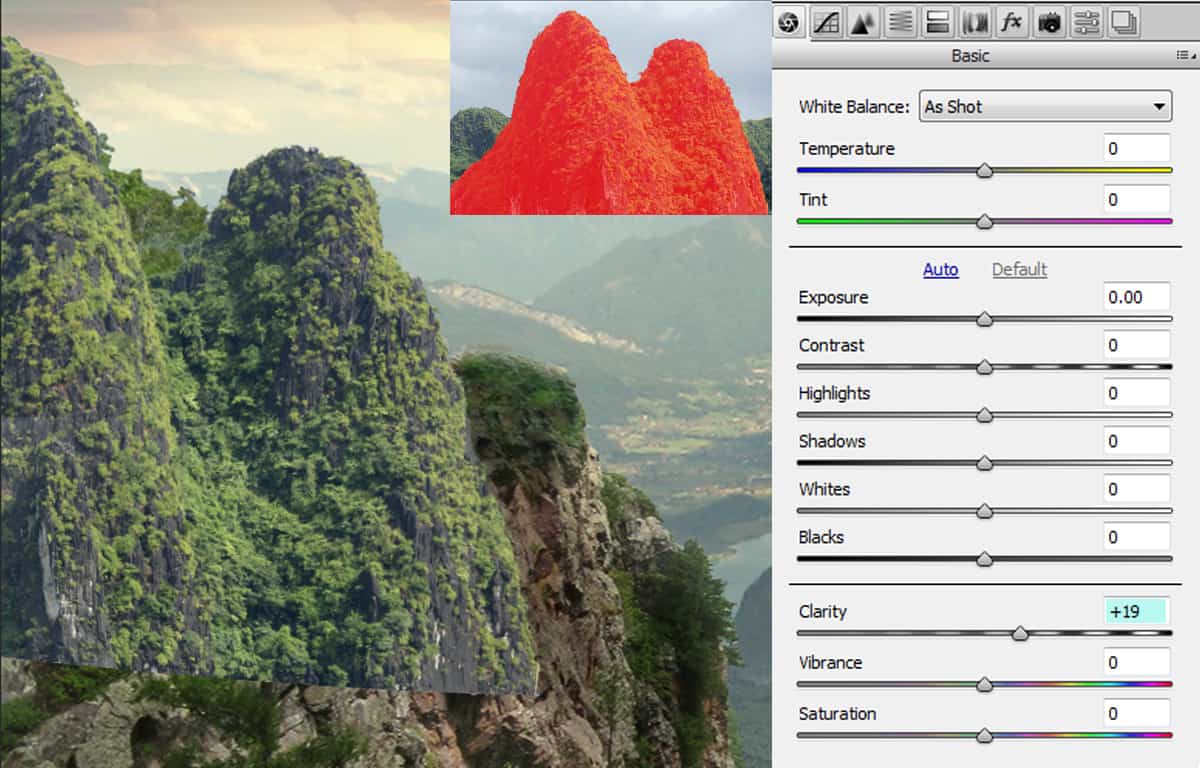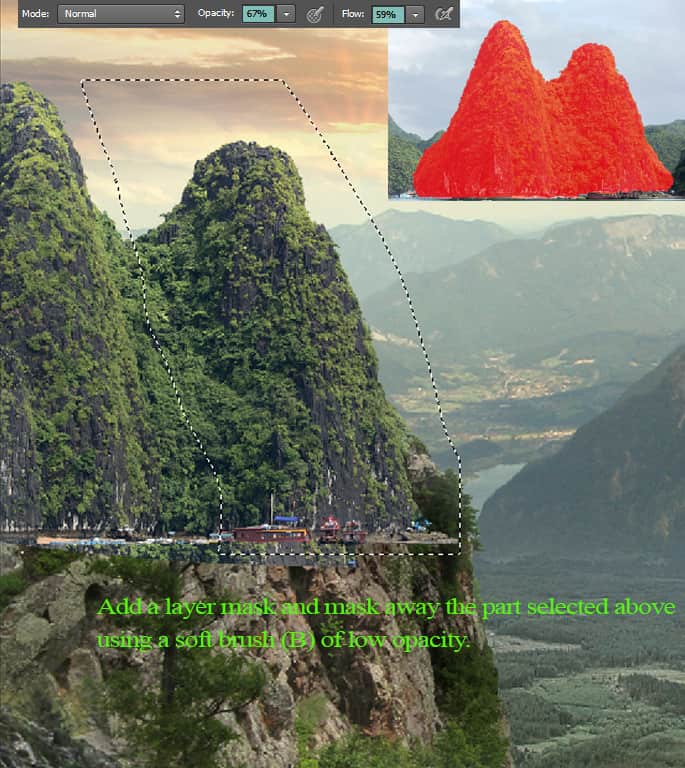Now duplicate the Cliff layer, with the transform tool (Cmd/Ctrl+T) scale its size and flip horizontally (Edit > Transform > Flip horizontal). Place it on the right side and with a layer mask; hide this part of the cliff using a soft brush.
To desaturate the cliff, I created a Hue/Saturation layer (set as clipping mask). Decrease the Saturation to -52 and Lightness to -7:
To brighten some part of the cliff I then created a Curves adjustment layer, in clipping mask:



Step 10
Open Peak 1 stock image from Cgtextures and pick Image 4. Go to Filters > Camera Raw Filters and increase the clarity to +19.
Using a Magic Wand (W) selection tool or whichever method you prefer, select the peaks only and import it to the main canvas above all the Cliff’s layers but below the Landscape layers.
Apply a Free Transform tool (Cmd/Ctrl+T), scale its size and tilt it slightly at an angle then place it on top of the cliff as shown below:
Then in clipping mask, create a Levels adjustment layer and following the same procedure as we did in the previous steps of 8 & 9. Apply the values shown below to create some lighting as shown in the selection:


Step 11
Open Image 9 from the peaks stock image. Pick the Magic Wand (W) selection tool and select the parts shown below. Import it to your main document and place it above peak 1 layer.
Apply a layer mask to it and using a soft brush of Opacity 67% and Flow 59%, mask away the parts shown in the selection below:

Step 12
Create a Levels adjustment layer with clipping mask and apply the following values:
Then fill the layer mask with black and using a soft brush 100% opacity, bring back the result of the Levels adjustment on the part selected below by setting the Foreground colour set to White.
Create a second Levels adjustment layer and to make the lighting more intense, we will increase the highlights using the values shown below on the selected part of the peak:
Again in clipping mask, create a Curves Adjustment Layer to brighten the peak’s top even more. Make a layer mask for the Curves adjustment and fill it with black as we did with the previous adjustments layers and then using a soft brush (B), reveal back the effect from the section shown in the selection below:
17 responses to “Create a Surreal and Magical Dream Bottle Landscape”
-
I have to say, this may be long but it is the most complete tutorial I have ever seen and I have been looking at tutorials for 20 years. Thank you for the assets, your time and your expertise. It’s wonderful. Don’t worry about people with short attention spans! XOX
-
I try but as a French speaker, it is realy hard and I couldn’t find some translation…
Thanks anyway.
Regards.
Françoise Labio -
really long, really tireing, but good tutorial, but its really really long
-
Really love it but i think a video Tut is better :D
-
its very long please make it short :(
-
Awesome tutorial. I always wonder how much patience these guys have to write such a long and detailed article.
-
It means that the .exe file is missing. Sometimes it happens because you have had a previous version of it and accidentally deleted it. But maybe you are installing it from a CD-ROM and it doesn’t have the file or it is located in another folder. Try to open the folder ahead i.e.: C:users-AppDataLocalAdobeOOBEPDAppDECore and see if there is any exe file. Another reason could be the path’s name.
-
???
-
Cool post this is really good
-
Hell yeah!
-
Yeah!:D
-
wonderful
-
Awesome tutorial. I like the way these tutorials explain the things… specially the screenshots.
-
Thank you for sharing this I have learned a lot and will use some of it in my own compositions.
-
Osm
-
yep:)
-
-
Excelente


Leave a Reply